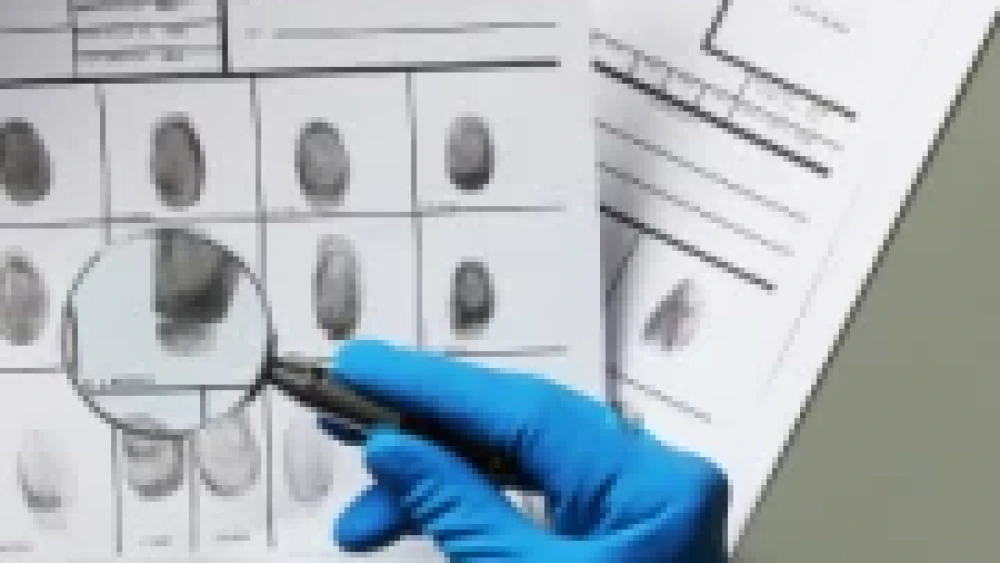
Criminology and Criminal Justice
The Master of Arts in Criminology and Criminal Justice at Kent State University is a fully online program that prepares students for leadership roles in law enforcement, public safety, and criminal justice policy. With a focus on crime prevention, global security, and criminal behavior analysis, this program equips graduates with the skills needed to address emerging challenges in the criminal justice field.
Program Overview
The Master of Arts degree in Criminology and Criminal Justice is designed to challenge experienced and aspiring professionals who want to expand their scope of knowledge and move into career and leadership positions. The program prepares graduates as next-generation leaders in this complex, global, and interconnected field. The flexible online program is structured to fit the lives of full-time working professionals.
The Criminology and Criminal Justice major comprises the following concentrations:
- The Global Security concentration focuses on issues related to global security, U.S. national security policy and strategy, as well as transnational issues and the concerns of other countries or regions. It provides students with a strong foundation to confront the ever-changing, fast-paced, and challenging international security environment. With an emphasis on traditional and emerging transnational security threats, students are prepared for analytical, operational and leadership careers in global security in the public and private sectors. The goal is to produce a new generation of analysts, policymakers and scholars knowledgeable about the wide range of international and national security problems and foreign policy issues of the 21st century.
- The Policing concentration examines the historical ideas of police service and the lessons that can be learned from those ideas. Students learn about the research that has challenged traditional ideas and the implications of that research for revision. The program provides students the tools to analyze the implications of contemporary research to guide new innovations in policies, management, strategies and tactics of police service delivery.
- The Victimology concentration provides specialized knowledge about the scientific study of crime victims, their treatment within the criminal and juvenile justice systems, the legal rights of victims and victim assistance and restorative justice programs. This concentration will prepare students to develop and lead initiatives that help prevent victimization, to engage in victimological research and evaluation, and to respond to victims in culturally appropriate ways.
Program Learning Outcomes
Graduates of this program will be able to:
- Demonstrate a practical understanding of criminological theory by using it to better understand crime and criminal behavior, pose and attempt to answer research questions and see its connection to crime policy.
- Demonstrate mastery of the significant empirical findings in the major areas of criminology and criminal justice.
- Demonstrate an appreciation for the use of the scientific method in the study of crime, a practical understanding of research methods used in the field and a practical understanding of statistics in social science research.
- Develop basic skills in planning and conducting research projects, including evaluation research in particular.
- Describe the role of race/ethnicity, gender, sexual orientation and social class as they relate to crime and victimization.
- Effectively communicate criminological knowledge and write a clear and concise analysis of issues, policies and research in the field.
Kent State University’s online Master of Arts in Criminology and Criminal Justice helps you harness your analytical skills and professional drive for an impactful career in public service. Shape the justice system from the inside as a skilled criminologist or criminal law professional with the theoretical and practical insights gained in the interdisciplinary master’s in criminal justice.
Complete your degree in as few as two years with Kent State’s flexible online course delivery and sophisticated learning management system. Whether you’re a working professional or are continuing studies after earning your bachelor’s degree, the online master’s in criminology and criminal justice will help you take the next step in your career development without putting the rest of your life on hold.
- 30 credits, consisting of 10 courses
- 7-week-long courses, with two courses taken sequentially each semester
- Graduate in as few as two years
- Small class sizes encourage networking and collaboration
- Three concentrations:
- Global Security
- Policing
- Victimology
The program is designed for students to not just succeed but to succeed with excellence and a deep understanding of the subject. Taking only two courses in a semester while working full-time, I was able to graduate with honors with a well-rounded perspective of the subject that I will carry with me in all my future career endeavors.
Careers in criminology and criminal justice offer interesting and challenging work and the satisfaction of helping protect and serve others while earning a good living. Whether you want to work in a research and policy-oriented role or work directly in crime prevention and law enforcement, your degree from a criminal justice master’s program could help you earn more.

Top 10% of Salaries: $105,540+

Top Salaries: $173,000+
On average, those with master’s degrees make 18% more than those with bachelor’s degrees, and the estimated cost of Kent State’s master’s in criminal justice is under $23,000. If you want to serve your community while earning a good living, the criminal justice master’s program figures to be a great investment in your future.3
Global Security

Our graduates often pursue careers as:
- U.S. Border Patrol Agents
- U.S. Immigration and Customs Enforcement Agents
- Drug Enforcement Administration Agents
- U.S. Marshals
- Special Agents
- Analysts
- Policymakers
This concentration focuses on issues related to global security, U.S. national security policy and strategy, transnational issues and the concerns of other countries and regions.
With an emphasis on traditional and emerging transnational security threats, the program will give you a strong foundation for success in the ever-changing, fast-paced and challenging international security field.
Global Security Program Outcomes
Our students graduate with a comprehensive foundation for understanding Intelligence and Counterintelligence (IC) as concepts, processes and careers. They’re versed in multiple topics related to global security, including:
- Economic and industrial espionage
- Trade secret thefts
- Law, technology and cyber-crimes
- Intellectual property theft
Policing

Our graduates often work in:
- Police Departments
- Sheriff’s Departments
- Private Security
- Departments of Corrections
- City Governments
In the Policing concentration, you’ll examine the historical ideas of police service and the lessons that can be learned from them. You’ll explore the research that has challenged traditional ideas and the implications of that research for revision. Further, you’ll analyze the implications of contemporary research to guide new innovations in policies, management, strategies and tactics of police service delivery.
Policing Program Outcomes
Graduates of the MA with a concentration in Policing will have expertise in:
- Various theories and research on police service
- The nature of coercion in human interaction
- The legitimate use of force by police
- Various philosophies and research on the Standard Model of policing, Community-Oriented policing, and Problem-Oriented policing
- Theories of police administration and the research corroborating or refuting their validity
Victimology

Our graduates often pursue careers in:
- Victim Advocacy
- Criminal Justice
- Law Enforcement
- Restorative Justice
The Victimology concentration in our criminal justice master’s program provides specialized knowledge of the treatment of crime victims within the criminal and juvenile justice systems, their legal rights, and victim assistance and restorative justice programs. You’ll prepare to develop and lead initiatives that help prevent victimization, engage in scientific victimological research and evaluation, and respond to victims in culturally appropriate ways. Read more about victimology.
Victimology Program Outcomes
Graduates will have fluency in:
- The physical, emotional, and financial harm people suffer because of criminal activities
- The impact of crime on victims
- Measuring crime through victimization
- Patterns of victim-offender relationships
- The role of the victim within the criminal and juvenile justice systems
For more information about graduate admissions, visit the graduate admission website. For more information on international admissions, visit the international admission website.
- Bachelor’s degree from an accredited college or university
- Minimum 2.750 undergraduate GPA on a 4.000-point scale
- Official transcript(s)
- Goal statement
- Three letters of recommendation (preferably academic)
- English language proficiency - all international students must provide proof of English language proficiency (unless they meet specific exceptions to waive) by earning one of the following:1
- Minimum 94 TOEFL iBT score
- Minimum 7.0 IELTS score
- Minimum 65 PTE score
- Minimum 120 DET score
1International applicants who do not meet the above test scores will not be considered for admission.
Our Admissions Outreach Advisors are available to answer your questions regarding admissions requirements for the program. If you have questions, please email us at online@kent.edu or call us toll-free at +1 330-672-8671.
Application FAQs
I am a U.S. citizen. Where should I send my application materials?
If you are a U.S. citizen or permanent U.S. resident, all required application materials should be sent to the Division of Graduate Studies at gradapps@kent.edu or by mail to:
Division of Graduate Studies
Kent State University
Cartwright Hall
P.O. Box 5190
Kent, OH 44242
Please be sure to include your full name and Kent State ID (9-digit number starting with 8) on all submitted documents. For questions, contact Graduate Admissions at +1 330-672-2661 or gradapps@kent.edu.
I am not a U.S. citizen. Where should I send my application materials?
If you are not a U.S. citizen or permanent U.S. resident, all required documents should be submitted to the Office of Global Education at intladm@kent.edu or by mail to:
Office of Global Education
Kent State University
106 Van Campen Hall
625 Loop Rd.
Kent, OH 44242
USA
For questions, contact International Admissions at +1 330-672-7970 or intladm@kent.edu.
The online master‘s in criminology and criminal justice is comprised of three major components:
- Six required courses, consisting of “breadth” classes and one course from the three concentration areas (21 credits)
- Three additional courses from your chosen concentration (9 credits)
- One required capstone project (3 credits)
The program is taught by a cadre of full-time, doctoral-level instructors who also have practical experience in diverse settings. Learn more about the faculty.
The goal of the MA degree is to enable you to write clear and concise analyses of issues, policies and research in the field that effectively communicate criminological knowledge and demonstrate a practical understanding of criminological theory.
We also prepare you to describe the roles of race/ethnicity, gender, sexual orientation and social class as they relate to crime and victimization; and use your knowledge to create public benefit by seeking connections between policies, crime and criminal behavior.
The online master’s in criminology and criminal justice curriculum is designed to impart:
- Mastery of the significant empirical findings in the major areas of criminology and criminal justice
- Appreciation for the use of the scientific method in the study of crime
- Practical understanding of research methods used in the field and statistics in social science research
- Basic skills in planning and conducting research projects, including evaluation research in particular
What is criminology?
Criminology studies the causes and consequences of criminal behavior; its main goal is to reduce crime by exploring social influences on criminal behavior. It is an intersectional discipline, meaning criminology students will study many disciplines, including law, psychology, sociology, and economics. For example, the prominent Australian criminologist Mary Francesca Bosworth studies race, gender, and citizenship in the context of incarceration. Her work aims to explore how prior experiences of poverty and abuse affect those in immigrant detention facilities, as well as how the experience of detention affects the future behavior of immigrants.
What is the difference between criminology and criminal justice?
Criminologists focus on reducing future crime by researching the causes and consequences of criminal behavior. Their work often results in recommendations for how laws and policies can be changed to reduce crime. Criminal justice professionals work to investigate crimes that have already occurred and uphold the law as written.
What is the Master of Criminology and Criminal Justice program at Kent State University?
The Master of Criminology and Criminal Justice at Kent State University is a 100% online graduate program designed to provide students with the skills and knowledge needed to advance in the field of criminal justice. The program offers specialized concentrations in Global Security, Policing, and Victimology to tailor studies to specific career goals.
What concentrations are available in the program?
Students can choose from three specialized concentrations:
- Global Security: Focused on national and international security challenges, counterterrorism, and cybercrime.
- Policing: Designed for professionals looking to advance in law enforcement leadership and public safety.
- Victimology: Emphasizes victim advocacy, trauma-informed care, and supporting victim-centered initiatives.
What skills do I need to succeed in this program?
Students in the online MA in Criminology and Criminal Justice Program must be strong researchers, writers, and critical thinkers. Additionally, they will need to be able to manage their time well.
Who is the CCJ program for?
Current criminal justice professionals like police, border patrol, and corrections officers who are looking towards promotion; students with a military background who want a graduate degree to improve their chances of being accepted into a federal agency like the FBI, ATF, or Secret Service; social service professionals who frequently work with victims of crime; recent college graduates who want to research and teach criminology.
What types of careers can graduates pursue?
Graduates are well-prepared for leadership roles in areas such as:
- Law enforcement agencies (local, state, and federal)
- National and international security organizations
- Victim advocacy and support services
- Corrections and rehabilitation programs
- Public policy and research institutions
What will I learn in Kent State’s Online Master’s Degree in Criminology and Criminal Justice?
Graduates of this program will be able to:
1. Demonstrate a practical understanding of criminological theory by using it to understand crime and criminal behavior better, pose and attempt to answer research questions, and see its connection to crime policy.
2. Demonstrate mastery of the significant empirical findings in the major criminology and criminal justice areas.
3. Demonstrate an appreciation for using the scientific method in the study of crime, a practical understanding of research methods used in the field, and a practical understanding of statistics in social science research.
4. Develop basic skills in planning and conducting research projects, including evaluation research in particular.
5. Describe the role of race/ethnicity, gender, sexual orientation, and social class as they relate to crime and victimization.
6. Effectively communicate criminological knowledge and write a clear and concise analysis of issues, policies, and research in the field.
Is the program 100% online?
Yes, the program is fully online with no required campus visits, providing flexibility for working professionals and individuals with personal commitments.
How long does it take to complete the program?
The program can be completed in as little as one year for some students, though most full-time students typically finish in two years. Part-time options are also available, allowing students to progress at their own pace.
Can I work full-time while enrolled in the program?
Yes, the flexible online format is designed to accommodate working professionals, allowing students to balance their studies with career and personal obligations.
When can I start the program?
The program offers multiple start dates throughout the year, making it convenient to begin when it best fits your schedule.
Who teaches the courses in the program?
Courses are taught by experienced faculty members who are experts in the fields of criminology and criminal justice, bringing real-world experience and academic expertise to the virtual classroom.
Program Courses
Program Requirements
| Code | Title | Credit Hours |
|---|---|---|
| Major Requirements | ||
| CRIM 56800 | INTELLIGENCE AND NATIONAL SECURITY | 3 |
| CRIM 66761 | LAW, JUSTICE AND SOCIETY | 3 |
| CRIM 66763 | THEORIES OF CRIME AND DELINQUENCY | 3 |
| CRIM 66768 | RESEARCH METHODS IN CRIMINOLOGY AND CRIMINAL JUSTICE | 3 |
| CRIM 66770 | JUSTICE INSTITUTIONS | 3 |
| CRIM 66772 | VICTIMOLOGY | 3 |
| Culminating Requirement | ||
| CRIM 66899 | PROSEMINAR CAPSTONE: ISSUES IN CONTEMPORARY JUSTICE | 3 |
| Concentrations | ||
| Choose from the following: | 9 | |
| Minimum Total Credit Hours: | 30 | |
| Code | Title | Credit Hours |
|---|---|---|
| Concentration Requirements | ||
| CRIM 56801 | HOMELAND SECURITY | 3 |
| CRIM 56802 | TERRORISM AND COUNTERTERRORISM | 3 |
| CRIM 56803 | INFORMATION AND CYBER SECURITY | 3 |
| Minimum Total Credit Hours: | 9 | |
| Code | Title | Credit Hours |
|---|---|---|
| Concentration Requirements | ||
| CRIM 56904 | ISSUES IN POLICE WORK | 3 |
| CRIM 66767 | JUSTICE ADMINISTRATION | 3 |
| CRIM 66773 | CONTEMPORARY POLICING | 3 |
| Minimum Total Credit Hours: | 9 | |
| Code | Title | Credit Hours |
|---|---|---|
| Concentration Requirements | ||
| CRIM 57002 | HUMAN SERVICE AGENCIES AND THE LAW | 3 |
| CRIM 57003 | RESTORATIVE JUSTICE AND VICTIM ASSISTANCE | 3 |
| CRIM 57004 | LEGAL PERSPECTIVES AND RIGHTS IN VICTIMIZATION | 3 |
| Minimum Total Credit Hours: | 9 | |
Graduation Requirements
| Minimum Major GPA | Minimum Overall GPA |
|---|---|
| - | 3.000 |
- No more than one-half of a graduate student’s coursework may be taken in 50000-level courses.
- Grades below C are not counted toward completion of requirements for the degree.
To participate in this online program, you will need a computer and broadband Internet connection. Your program may have further requirements that include the ability to record video and audio. If you have questions regarding technology requirements for the program, please contact your Admissions Outreach Advisor at online@kent.edu or call us toll-free at +1 330-672-8671.
Once you are admitted to the program, your Admissions Outreach Advisor will craft your personalized degree plan, giving you a clear course sequence and path to graduation.
Exclusive Opportunity for KSU Undergraduates: The Accelerated MA in CCJ Degree Option
Launch your career sooner than you expected to. In Kent State’s criminology and criminal justice program, juniors and seniors with qualifying GPAs can apply up to 12 credit hours of coursework toward the CCJ bachelor’s and master’s degrees. By earning double credits, you’ll earn your online MA in Criminology and Criminal Justice earlier than anticipated, save money on tuition and fees, and be prepared to dive into your career ahead of your classmates and ahead of schedule. For more information, please contact your Admissions Outreach Advisor at online@kent.edu or call us toll-free at +1 330-672-8671.
Master of Arts in Criminology and Criminal Justice Tuition and Fees
| Ohio Residents | Out of State | |
| Per Credit Hour | $676 | $686 |
| Approximate Program Cost | $20,300 | $20,600 |
*Out-of-state/International tuition includes a surcharge of $10 per credit hour for all students enrolled in an online program.
- An additional Distance Learning fee for all students enrolled in a distance learning course is $15 per credit hour. Program tuition and costs are estimated and subject to change.
- Actual tuition costs will vary based on a student’s chosen academic plan. The full cost of attendance consists of tuition and fees, and when applicable, food, housing, books, course materials, supplies and equipment, transportation and personal expenses for the enrolled terms. Other expenses not included in tuition and fees totals can be found on the Kent State University cost of attendance web page.
- For a complete listing of tuition rates for approved online programs, please contact Kent State’s Financial, Billing & Enrollment Center at 330-672-6000 or via our website Contact Us link.
Master of Arts in Criminology and Criminal Justice Careers
- 6.7% faster than the average
- 16,800 number of jobs
- $63,560 potential earnings
- -7.8% decline
- 48,700 number of jobs
- $60,910 potential earnings
- 5.2% faster than the average
- 126,100 number of jobs
- $92,970 potential earnings
Notice: Career Information Source
* Source of occupation titles and labor data comes from the U.S. Bureau of Labor Statistics’ Occupational Outlook Handbook. Data comprises projected percent change in employment over the next 10 years; nation-wide employment numbers; and the yearly median wage at which half of the workers in the occupation earned more than that amount and half earned less.
Related Reading from the Kent State Online Blog
Sources
1. Retrieved on May 6, 2022, from bls.gov/ooh/protective-service/police-and-detectives.htm#tab-5
2. Retrieved on May 6, 2022, from glassdoor.com/Salaries/criminologist-salary-SRCH_KO0,13.htm
3. Retrieved on May 6, 2022, from bls.gov/careeroutlook/2021/data-on-display/education-pays.htm








